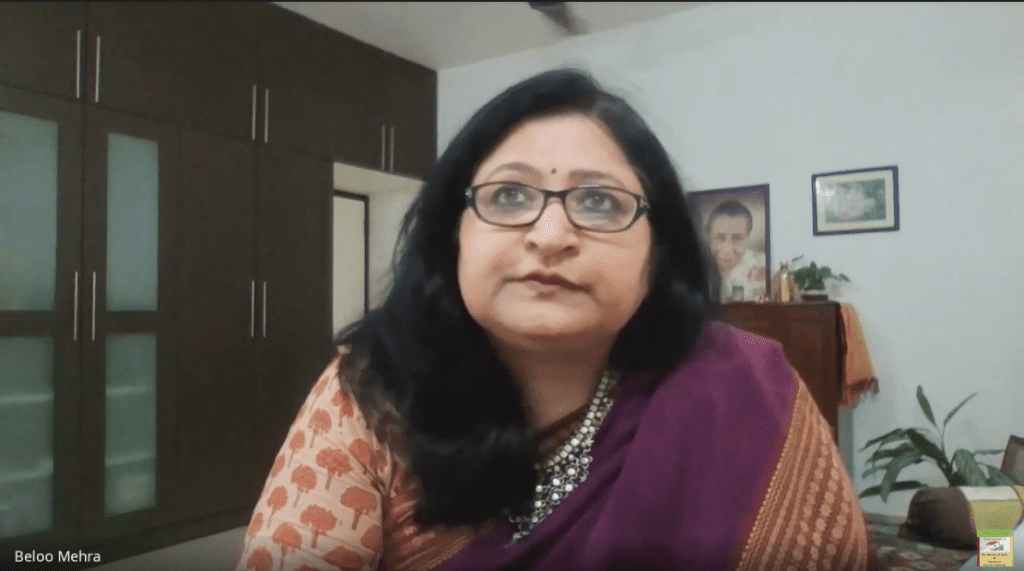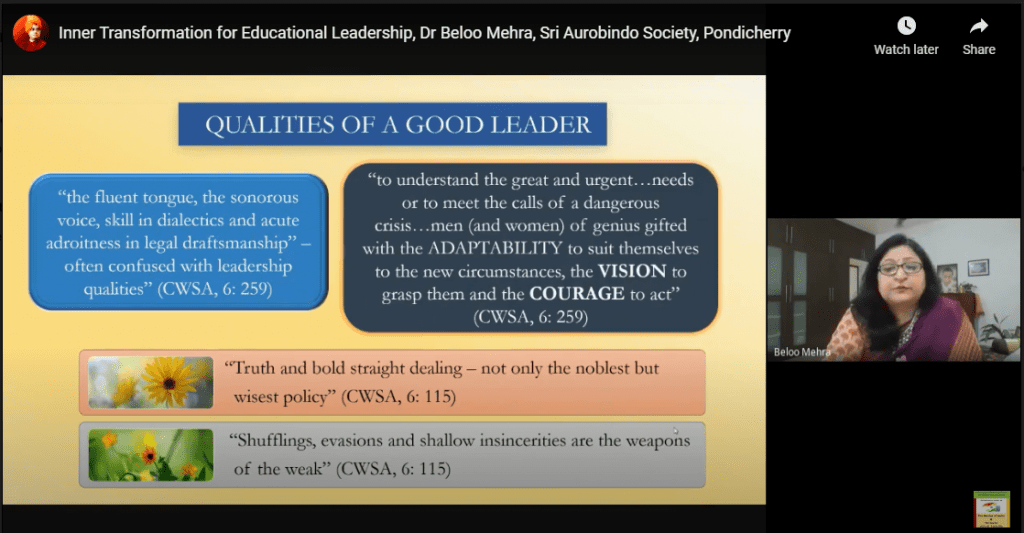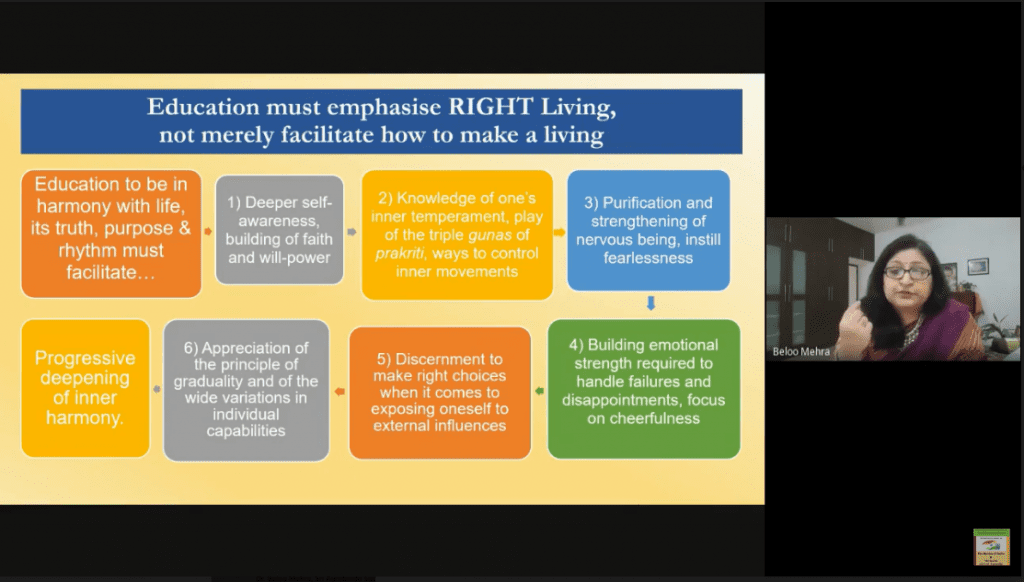Date: August 15, 2022
Watch full recording of the lecture HERE.
At the invitation of Dr. Narendra Joshi, Project Director of Swatantra Bharat 75, a series of lectures organised by Vivekananda Kendra, Kanyakumari and Vivekananda Prabhodini, Mumbai, Dr. Beloo Mehra, Director, BhāratShakti, Sri Aurobindo Society recently delivered an online lecture on the topic – Inner Transformation for Educational Leadership. This lecture was released on the auspicious occasion of 75th Independence Day of India and 150th birthday of Sri Aurobindo.
Dr. Mehra explained that not only the principals, educational administrators and policy makers are the leaders in the context of education. But teachers, parents and every adult who is in any way responsible for the care and education of children and youth is a leader and must cultivate in himself or herself the inner qualities which can help their own growth.


Pointing out that the real work of the teacher happens through example and influence, Dr. Mehra focused on the necessity for a teacher’s constant inner growth and transformation. As leaders, they show learners a path toward growth, toward self-development, toward finding a purpose and meaning in their lives. Or at least ideally that’s what a teacher is supposed to be – a light, a guide in the life of a learner. Someone who by example and influence leads the way. Keeping this broad definition of educational leadership in mind, what kind of inner transformation, or inner development may be necessary for those who lead in various capacities or roles this enterprise of education?
Dr. Mehra zoomed in on some of the most perceptive insights that can be culled from the various works of Sri Aurobindo and the Mother on leadership. She focused on the inner dimension of leadership that has been brought to light by Sri Aurobindo and the Mother. She reminded that in their own unique ways, both Sri Aurobindo and the Mother were highly influential and inspiring leaders. Their leadership had its source in the highest domains beyond ordinary human intelligence which is why as leaders they were highly effective in facilitating an inner transformation in the people around them.


Sri Aurobindo during his political revolutionary days spoke of several qualities necessary for an effective leader. And the Mother in her exemplary work of managing various departments of the Ashram and taking care of inner and outer lives of sadhaks showed through her example true leadership. Dr. Mehra pointed out the significance of leadership insights from Sri Aurobindo and the Mother in the context of educational leadership. She emphasised the inner dimension of leadership as being more significant than merely the outer personality-based qualities. In that context, the truth-speaking and direct straightforward dealing, having inner plasticity, flexibility, adaptability and vision to see beyond the immediate and outer surface happenings – these and other such qualities for a true leader.
